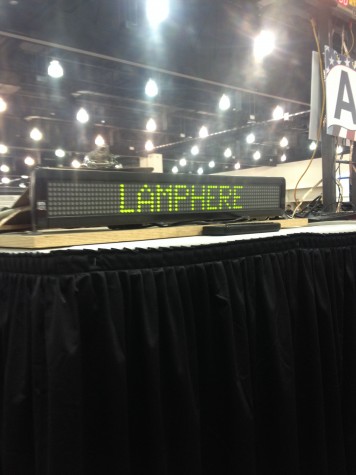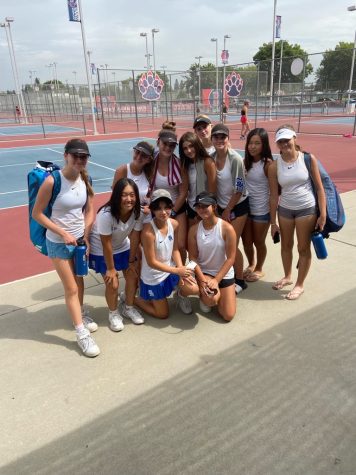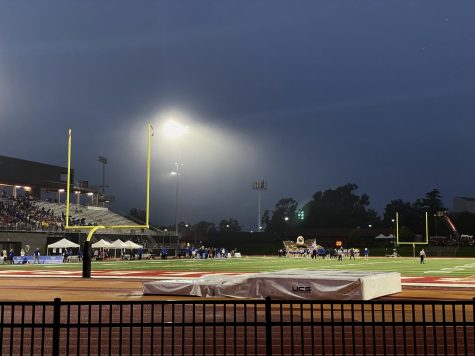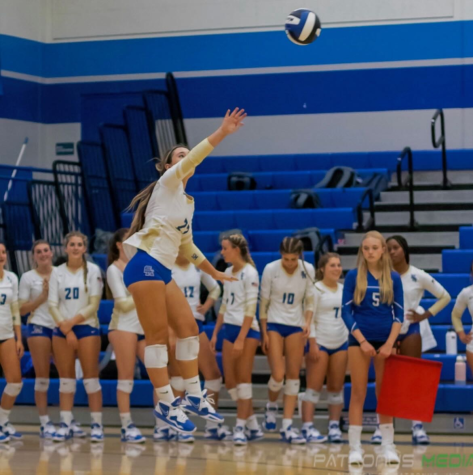En garde!
Senior Mackenna Lamphere fences her way through high school.
You hear the word “fencing”, and what do you think of? Perhaps 12th century men with swords fighting for a damsel in distress, or maybe Lindsay Lohan’s The Parent Trap? What about an SMCHS student behind the mask?

One of SMCHS’s own, senior Mackenna Lamphere, fences competitively at Laguna Fencing Center, an all sabers club. (Saber being the type of sword she uses.)
When looking for a sport for her sister, Lamphere came across fencing by word-of-mouth from a family friend. At the time, she was doing both club and high school soccer and basketball along with ballroom dancing and tae kwon do. She attended a fencing class only to watch, but afterwards, the fencing coach asked her to stay.
“I moved up the levels of classes at a fairly quick rate,” Lamphere said. “When it came to the eighth month and it was time to buy equipment, with it being an expensive sport, my mom said that if I chose it, I would have to give something up. So I gave up soccer.”
Lamphere makes the comparison between fencing and chess because they both are highly mental sports.
“You don’t have the time [to think] in fencing,” Lamphere said. “You have less than a second to come up with your next strategy and if you have a mental lapse for even a second, then you could be down by two points. When you’re in class you really work on the mentality of fencing and when you get out there and it’s whatever happens, happens. You can’t really think on it; I honestly try not to think about it.”
Fencing is not popular in California, especially for teenage girls. However, on the East Coast, there are clubs with 30-40 girls the same age as Lamphere.
“You have to go out of state to travel and you aren’t going to have anyone your age to practice against,” she said. “You will be fencing against the older boys or the girls and hopefully the skill level is similar to where you are.”
With around 17 hours of practice a week, Lamphere had less and less time for basketball and school during her freshman and sophomore years.
“I was good at basketball and I was good at fencing,” Lamphere said. “But if I gave one up, I could be great at one. Whether I go to [college] to fence or go to [college] for basketball, it was which would I be happy with saying that’s what I did for my last two years of high school.”
Lamphere chose fencing. Now with college on the horizon, she has another decision to make — whether or not she will fence in college. As of right now, she is keeping secret which colleges have shown interest in her.

“I still haven’t decided whether or not I would like to fence [in college],” she said. “The thought of signing and being on a team is something that I really want to be a part of. But at the same time, that is four days a week of practice on top of being a college student.”
Regardless of whether she continues the sport after this year, Lamphere is satisfied that she excels in such a unique sport.
“Even if I don’t fence in college, I could still say ‘I’m a fencer’ and that’s pretty cool,” she said. “It’s a cool opening when I go into interviews, saying that I fence.”




